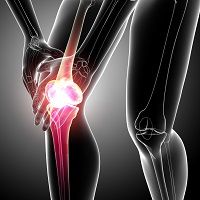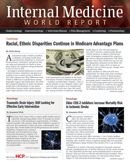Acupuncture for Chronic Knee Pain
When traditional medicine fails to relieve a patient's symptoms, the desire to seek alternative treatments can be a viable option for many people.

A study recently published in the Journal American Medical Association looked at whether acupuncture could help relieve chronic knee pain. The clinical trial, held in Australia between February 2010 and December 2012 involved 282 patients over the age of 50 with chronic knee pain who were treated by family physician acupuncturists. Chronic knee pain was defined as lasting longer than 3 months on most days with a severity score of at least 4 on a 10 point scale. Morning stiffness lasting less than 30 minutes was also a criteria for participation.
The group was then broken into several arms with 71 receiving no acupuncture, 70 receiving acupuncture with needles, 71 receiving acupuncture with lasers and 70 receiving sham laser acupuncture. The patients then underwent their respective treatment options over the course of 12 weeks with the 2 laser groups blinded as to whether they were receiving the true laser treatment or sham laser. The control group was also not aware of the purpose of the study.
As the study concluded, a total of 76 participants dropped out by the time a year had passed. Data from the participants showed that “neither needle nor laser acupuncture significantly improved pain (mean difference -0.4 units; 95% CI, -1.2 to 0.4, and -0.1; 95%CI, -0.9 to 0.7 respectively) or function (-17.95%, -6.1 to 2.6 and 0.5; 95% CI, -3.4 to 4.4 respectively),” when compared to sham treatment.
There was what the authors termed “modest,” improvements in pain for the needle and laser groups when compared with the control (-1.1; 95% CI, -1.8 to -0.4, and -0.8; 95% CI, -1.5 to -0.1 respectively) at the 12 week mark. They noted there was not the same improvement after one year. Other results showed “modest” function improvement for needle acupuncture at 12 weeks (-3.9; 95% CI, -7.7 to -0.2) but not much better than sham (-1.7; 95% CI, -6.1 to 2.6.) Any improvement was also lost at the one year mark and the authors also reported “no difference for most secondary outcomes and no serious adverse events.”
Looking at the overall results the authors said that especially for patients over the age of 50 with, “moderate or severe chronic knee pain,” neither form of acupuncture provided noticeable relief. “Our findings do not support acupuncture for these patients,” they said.
The trial was funded by the National health and Medical Research Council. Two of the doctors involved in the trial were funded in part by Australian Research Council Future Fellowships. A third doctor received funding partly from a National Health and Medical Research Council Practitioner Fellowship, while a fourth was funded by a National health and Medical Research Council Career Development Fellowship. Additionally, another contributing doctor also received funding from a National Health and Medical Research Council grant.
